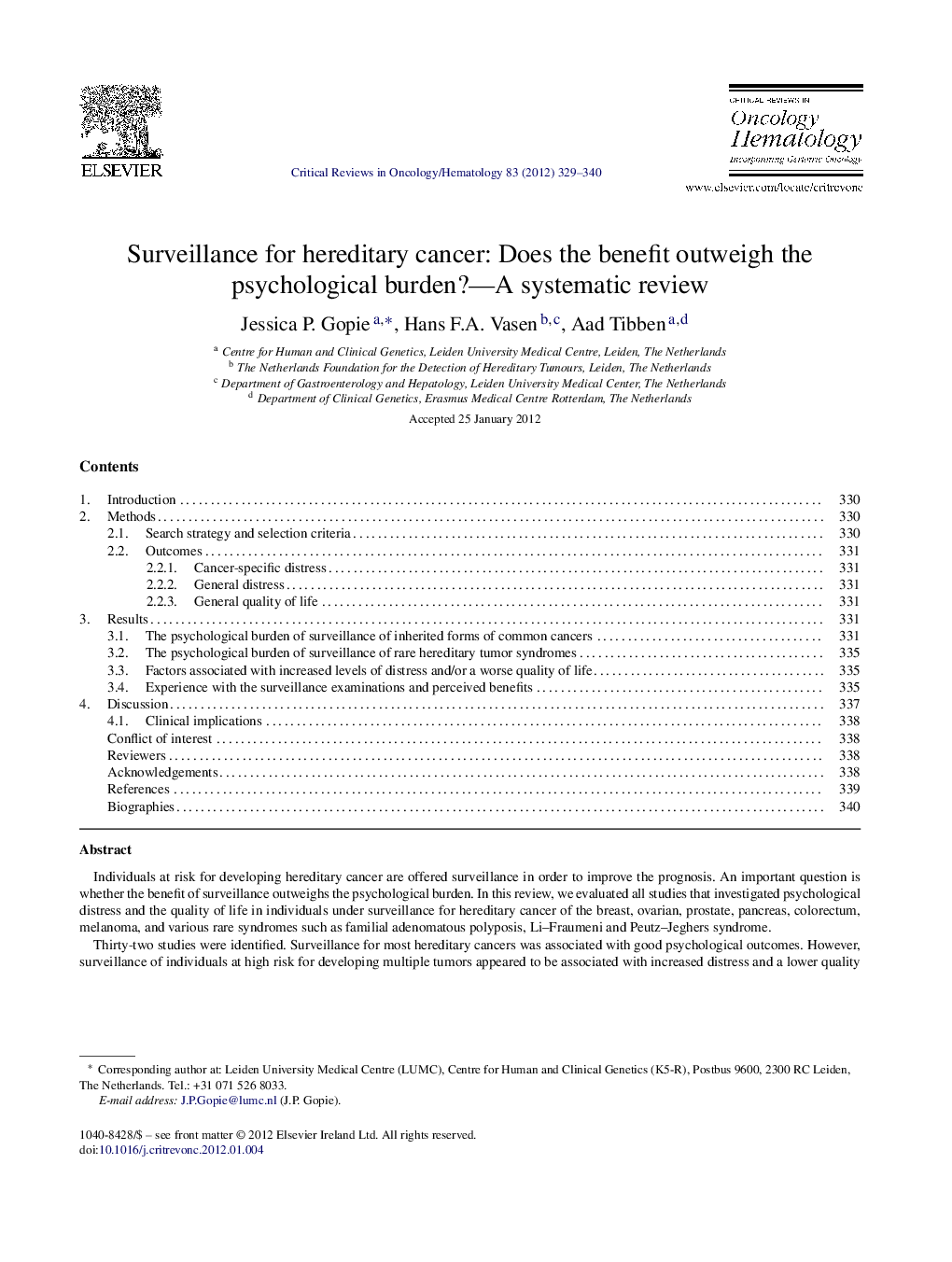| Article ID | Journal | Published Year | Pages | File Type |
|---|---|---|---|---|
| 3328923 | Critical Reviews in Oncology/Hematology | 2012 | 12 Pages |
Individuals at risk for developing hereditary cancer are offered surveillance in order to improve the prognosis. An important question is whether the benefit of surveillance outweighs the psychological burden. In this review, we evaluated all studies that investigated psychological distress and the quality of life in individuals under surveillance for hereditary cancer of the breast, ovarian, prostate, pancreas, colorectum, melanoma, and various rare syndromes such as familial adenomatous polyposis, Li–Fraumeni and Peutz–Jeghers syndrome.Thirty-two studies were identified. Surveillance for most hereditary cancers was associated with good psychological outcomes. However, surveillance of individuals at high risk for developing multiple tumors appeared to be associated with increased distress and a lower quality of life. Common factors associated with worse psychological outcomes included a personal history of cancer, female gender, having a first degree relative with cancer, negative illness perceptions and coping style. The use of a simple screening tool to identify distressed individuals is recommended.
